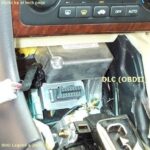The ZUS Smart Vehicle Health Monitor Mini (Gen 4) has garnered attention, largely due to its enticing “free” offer. As someone who’s explored this OBD2 scanner, I can offer an in-depth review, moving beyond the initial marketing to examine the product’s quality, the reality behind the “free” claim, and the crucial aspect of data privacy.
Quality and Functionality: Where ZUS Shines
Let’s begin with the positives. The ZUS OBD2 scanner itself is a competent device. It effectively connects to your car’s OBD2 port and, paired with the ZUS app, provides valuable insights. The app is well-designed and user-friendly, offering a smooth experience. Features like battery health monitoring and driving efficiency analysis are genuinely useful additions, helping you stay informed about your vehicle’s condition and driving habits. For basic vehicle diagnostics and monitoring, the ZUS device and app perform admirably.
The “Free” Factor: Decoding the Marketing Tactic
However, the “free” aspect is where things become less straightforward. ZUS markets the device as free, boasting a “standard price” of around $60, only to present a significant shipping fee at the final stage – in my experience, exceeding $19. When you consider that standard OBD2 readers can be purchased for around $12, and typical postage for a small item is significantly less than $19, the “free” offer starts to look more like a marketing strategy than a genuine giveaway. It appears the hefty “shipping” charge likely covers not only postage but also the cost of the device itself. This practice of labeling “paid” as “free” is a concerning marketing tactic that lacks transparency.
Further suspicion arises from their referral program, which offers a $10 reward for each friend you invite to claim their “free” ZUS device. If the device were truly free, the economics of such a generous referral program would be questionable. This reinforces the idea that the cost is cleverly embedded within the shipping fees.
Data Privacy: A Trade-off to Consider
Beyond the marketing tactics, data collection is a significant aspect of the ZUS experience. Similar to many modern tech products, ZUS gathers data. This includes your car’s VIN (optional), model, year, diagnostic trouble codes, driving behavior, and routes – even if you don’t subscribe to their mileage logging service. While this data collection enables them to improve their products and services through mass data analysis, it also raises privacy concerns. Even as a subscriber, opting out of data analysis and potential data selling (even if anonymized) is not an option. For users in Europe, it’s worth noting that while ZUS claims compliance with GDPR and CCPA, the extent of data collection and control remains a point of consideration.
User Experience Quirks: The App Dashboard
The ZUS app interface isn’t without its minor drawbacks. The primary dashboard screen prominently displays four wheels, seemingly advertising their tire pressure monitoring product. These wheels occupy a significant portion of the screen (around 20%) without providing data unless you use their additional tire monitoring system. While you can remove these wheels in settings, doing so leads you to a dashboard primarily focused on subscription-based features. This feels somewhat like an advertisement pushing subscriptions, similar to “remove ads” models in other apps.
Conclusion: A Qualified Recommendation
In conclusion, the ZUS OBD2 Smart Vehicle Health Monitor Mini is a functional product with a user-friendly app and useful features. However, the “free” marketing approach is misleading and lacks transparency. More importantly, the comprehensive data collection practices should be a significant consideration for potential users.
If you are comfortable with sharing your vehicle and driving data and are willing to navigate the unclear “free” offer, the ZUS device can be a worthwhile tool for basic car health monitoring. However, if data privacy is a primary concern, or if you prefer transparent marketing, exploring alternative OBD2 scanners and apps like ELM327 devices paired with Torque Pro might be a more suitable option. These alternatives often provide similar functionality without the subscription models and data collection concerns, potentially at a comparable overall price point when considering the ZUS “shipping” costs. Ultimately, the decision hinges on your priorities regarding convenience, cost transparency, and data privacy.
